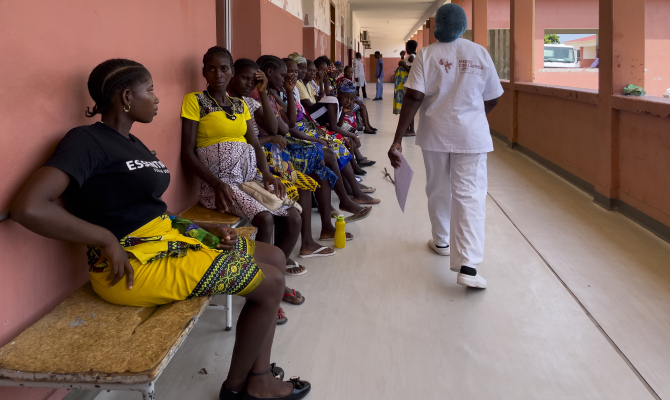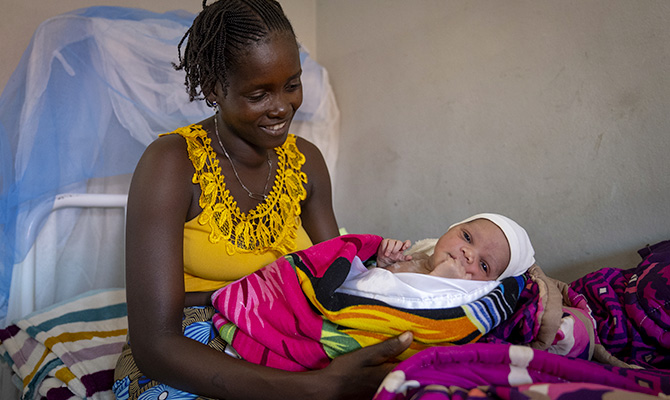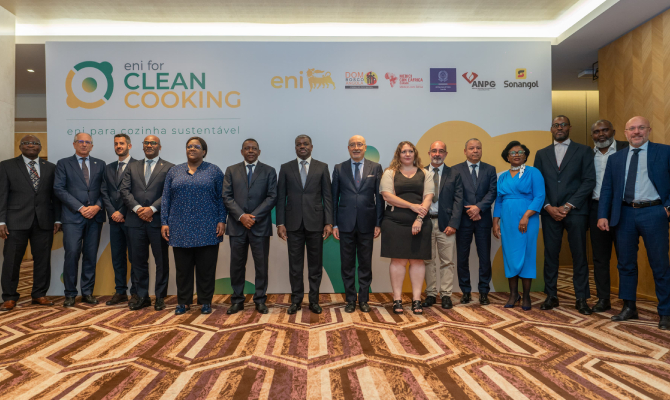Newborn healthcare remains one of the primary constraints faced by CUAMM’s team at Chiulo Catholic Hospital due to lack of dedicated spaces, equipment and trained personnel. Moreover, physical barriers for institutional delivery are increasing the risks of newborn complications other than jeopardising maternal health. The prolonged drought has led to an increase rate of acute malnutrition among under 5 and it is strictly intertwined with infectious disease, more commonly widespread due water scarcity, resulting in half of children in drought provinces showing at least one sign/symptom of infectious disease (diarrhoea, fever or cough). The high level of malnutrition among PLW are worsening health outcomes since the first days of life of newborns. Poor dietary diversity and micronutrients deficiency in pregnant women is also contributing to high malnutrition rates among children <5.
In Cunene province, CUAMM and Manos Unidas join efforts in favor of women and newborns by providing integrated health and nutritional services at Chiulo Catholic Hospital.
In order to better manage newborns and paediatric’s complication at hospital level hence reduce newborns and pediatric complications, a dedicated intensive care area is being constructed within the paediatric wards. Furthermore, renovations at the maternal waiting home – casa de espera, will facilitate access to safe delivery for a a major number of women. Education is also a milestone in the intervention: to enhance caretakers’ knowledge, the project will support awareness raising sessions and cooking demonstrations at hospital level while also supporting the construction of an outdoor kitchen.
«Malnutrition is caused by a significant imbalance between nutritional intake and individual needs. It is most often caused by both quantitative and qualitative deficiencies – said Ndapandula Wilca, chief nurse at the maternal waiting home. Here at casa de espera (maternal waiting home) in Chiulo hospital we organize cooking demonstration to engage women in sensitization activities. By teaching them how to make the most out of what they have at disposal we can prevent malnutrition».
The intervention will directly benefit 1.976 recipients while reaching an overall number of about 300.000 people in the drought-affected province of Cunene.

The prolonged drought in the south of Angola has led to more than two million children in need of humanitarian assistance, 1.2 million people in need of water availability and in 1.58 million people facing acute food insecurity in South-western Angola (WFP, June 2023) and about 15% of the population in Emergency (IPC Phase 4) (2022). The impact of drought on the livelihood opportunities dominated by agriculture and livestock has also adversely affected the nutrition status of the population being pregnant and lactating women (PLW) and children under 5 years of age the most vulnerable groups.
Cunene Province is among the provinces in the country with the highest prevalence of insufficient food consumption. The province experienced below-average production, resulting in higher market dependence amid higher food prices and relatively lower livestock prices. Despite the slight improvements registered in the past months, according to Relatório Avsan 2021, Cunene is among the regions with the highest malnutrition rate with Global Acute Malnutrition – GAM at 7.9% in Cunene (the prevalence of Severe Acute Malnutrition – SAM and/or oedema is 1.4% and Moderate Acute Malnutrition – MAM at 6.5%).
Doctors with Africa CUAMM is working at Chiulo Catholic Hospital, to contribute to improve the nutritional and health status of newborns, and pregnant and lactating women in line with the SDGs 2.2 and 3.3. The intervention, supported by Manos Unidas, aims to reduce newborns and pediatric complications through the construction of a dedicated intensive care unit within the paediatric wards. Proper equipment and trained healthcare workers will improve the management of newborn and pediatric care at hospital level. Furthermore, the upgrade of a maternal waiting home, casa de espera, will increase the number of women with access to safe delivery, thus reducing newborns, pediatric and maternal complications. Moreover, awareness activities among caregivers, PLW and caretakers on health, hygiene and nutrition practices will facilitate prevention and treatment of acute malnutrition hence improve health outcomes.





